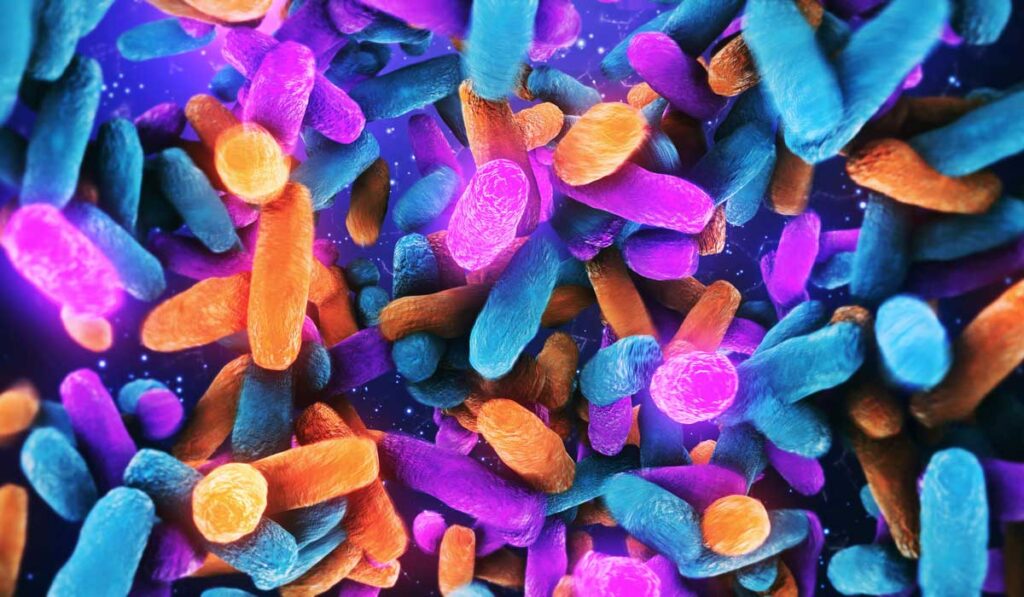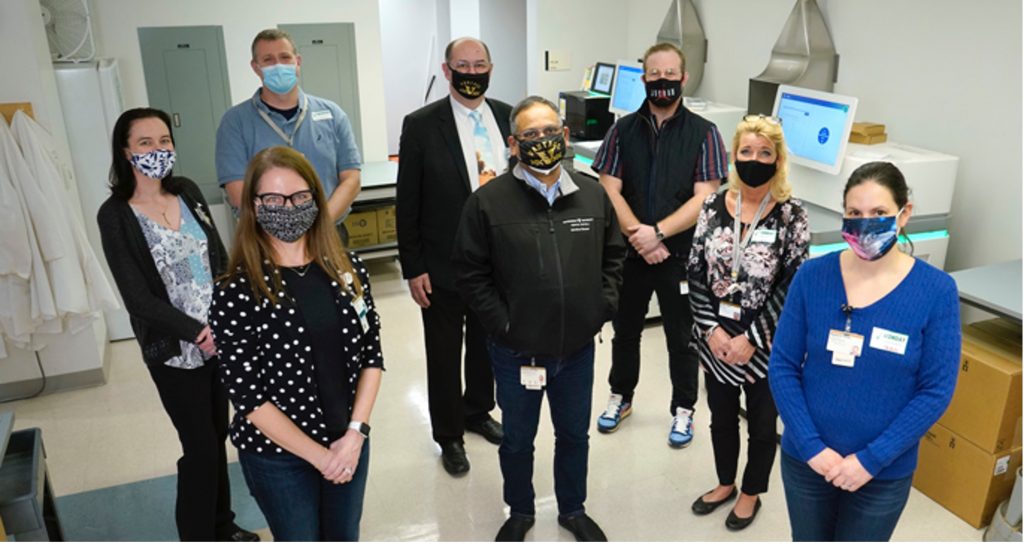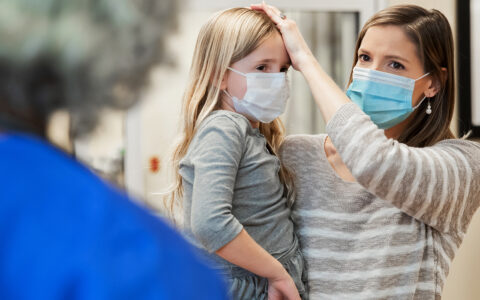The respiratory microbiome may be predictive of severe outcomes from COVID-19, according to new research from investigators at Vanderbilt University Medical Center.
Published in Frontiers in Cellular and Infection Microbiology, the findings indicate that nasal swabs collected for diagnosis of COVID-19 could also be used to predict risk of hospitalization and death.
“We looked at samples from Nashville and New York, and even across these locations, we found a significant difference in microbiome community structure and composition that could be predictive of disease severity,” said Suman Das, Ph.D., senior author and an associate professor of medicine at Vanderbilt.
The study is the latest research spurred from a $3.7 million award from the CDC to Das and Jonathan Schmitz, M.D., medical director of the Molecular Infectious Diseases Laboratory at Vanderbilt, to determine genetic and bacterial factors linked to illness and death from COVID-19.
Co-investigators include Julie Bastarache, M.D., an associate professor of medicine at Vanderbilt, and Simon Mallal, M.B.B.S., scientific director of the Vanderbilt Technologies for Advanced Genomics (VANTAGE) and the Immunogenomics, Microbial Genetics and Single Cell Technologies (IMGSCT) cores.
Dysbiosis Linked to Severe Disease
For the new study, the team asked whether changes in the upper respiratory tract microbiome could serve as an early biomarker of severe COVID-19.
By analyzing data from over 100 participants – including uninfected individuals as well as those with mild, moderate, and severe COVID-19 – they determined that overall upper respiratory tract bacterial load, richness, and dysbiosis consistently increased with disease severity.
The latter finding is in line with a relatively new principle in the field of microbiology which proposes that stressors, like viral infections, cause microbiomes to vary randomly.
“Those with very severe COVID-19 had [upper respiratory tract] microbiomes that were the most distinct from each other,” wrote the authors.
Viral-Bacterial Interactions
Das and colleagues, including Christian Rosas-Salazar, M.D., an assistant professor of pediatrics at Vanderbilt, have studied interactions between respiratory viruses and bacteria for several years.
While some types of bacteria appear protective, others may make the respiratory tract more vulnerable. The team previously reported that infants who have higher amounts of the bacterium Lactobacillus present in their nose or upper throat during an acute respiratory syncytial virus infection are less likely to develop childhood wheezing illness.
“Bacteria in the respiratory tract may be important in modulating how you respond to an invading virus,” Rosas-Salazar said.
Similarly, in the new study, the researcher report that the abundance of Corynebacterium consistently decreased as COVID-19 severity increased.
“Corynebacterium is considered a ‘healthy’ bacterium and one of the top bacteria present in the nose and nasopharynx,” Das explained. The authors speculate that the bacterium might be protective against SARS-CoV-2 infection or resulting inflammation.
Mapping Microbiome Variation
Das and colleagues have also reported that SARS-CoV-2 interacts with respiratory bacteria in ways that potentially worsen symptoms.
For that study, the team used 16s ribosomal RNA sequencing to characterize the upper respiratory tract microbiome in 21 uninfected adults and in 38 patients with mild to moderate COVID-19.
Four amplicon sequence variants were significantly elevated in both uninfected individuals and in those infected with SARS-CoV-2 but with low viral load, including Corynebacterium unclassified, Staphylococcus haemolyticus, Prevotella disiens, and 2 Corynebacterium_1.
Likewise, the abundance of nine amplicon sequence variants were significantly elevated in both individuals infected with SARS-CoV-2 and in those with high viral load, including Peptoniphilus lacrimalis, Campylobacter hominis, Prevotella 9 copri, and an Anaerococcus unclassified.
Improving Diagnosis
The research team is now assessing how vaccination status impacts the respiratory microbiome. Collectively, they hope their findings will inform approaches to predict disease severity from SARS-CoV-2 and determine which patients may or may not respond to antiviral treatments, including antibody therapy.
Key resources include BioVU, Vanderbilt’s biobank of DNA and other biological materials, and MicroVU, which includes bio-banked specimens containing more than 220 different species of bacteria linked to the Vanderbilt research data warehouse. Co-directed by Schmitz and Maria Hadjifrangiskou, Ph.D., associate director of the Vanderbilt Institute for Infection, Immunology and Inflammation, the resource includes respiratory specimens from COVID-19 patients.







